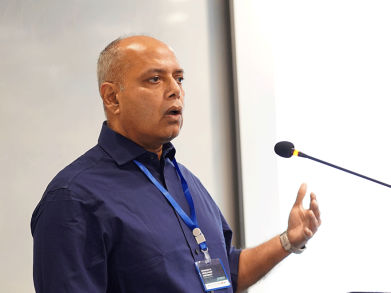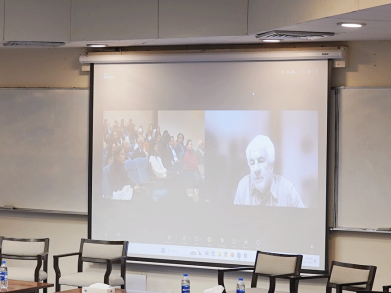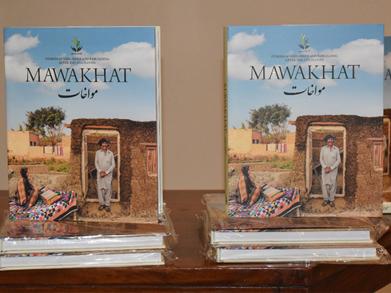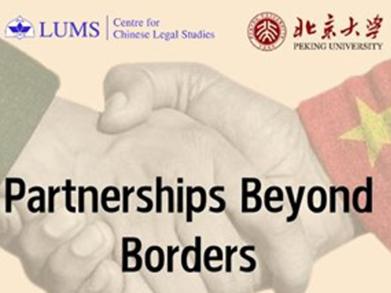Renowned Economist, Dr. Reza Baqir Shares Insights into Pakistan’s Economic Trajectory
The LUMS community enjoyed an insightful conversation with Dr. Reza Baqir on September 7. A former Governor of the State Bank of Pakistan (2019 to 2022), Dr. Baqir delivered a talk about the country’s economic health and the role that institutions can play in its development.
He was welcomed by the University’s leadership, including Mr. Abdul Razak Dawood, Pro Chancellor; Rector, Mr. Shahid Hussain; Dr. Arshad Ahmad, Vice Chancellor, and Ms. Nuzhat Kamran, Director, Office of Advancement.
In his illustrious career, Dr. Baqir has held senior country and policy positions at the IMF based in Washington, Egypt, and the Philippines. He is a Harvard University graduate and has a PhD in Economics from the University of California, Berkeley.
As Governor of the State Bank, Dr. Baqir led Pakistan’s financial crisis management and economic response during the COVID-19 pandemic. He also successfully negotiated a new IMF programme in June 2019 and launched several new initiatives to digitise Pakistan’s financial sector to promote innovation and inclusion. As a result of those efforts, total digital transactions in the country grew 45% in 2021 to reach USD 650 billion, exceeding the GDP of Pakistan.
Digitisation is a core value at the State Bank, explained Dr. Baqir, and there are several innovative initiatives in place to provide banking solutions. One such example is the Roshan Digital Account which facilitates cash transfers for millions of non-resident Pakistanis. He shared how this initiative simplified the process for people from overseas who want access to banking services in Pakistan, and does not require them to file tax returns.
Dr. Baqir also highlighted the role universities play in the economic trajectory of a nation. He recounted how during his time heading the IMF office in the Philippines, a country with striking parallels to Pakistan, a non-partisan plan was put into place by leading economists of the country. This plan, he explained, was led by a university in the Philippines. “The plan was not political and raised awareness among the public, which made it easier for the government to follow their recommendations. As a result, the Philippines prepaid all debts owed to the IMF and had an economic turnaround,” he said.
LUMS too, he explained, can play a vital role in Pakistan’s economic development. He explained, “Universities are a good launching pad for such an initiative as they are non-political spaces, where people focus on the pursuit of difficult questions. There is a great opportunity for people at LUMS to come together as a non-partisan group with experts on board and work on a few critical interventions.”
The talk was followed by a candid question-and-answer session, where Dr. Baqir responded to queries from students and faculty.






















